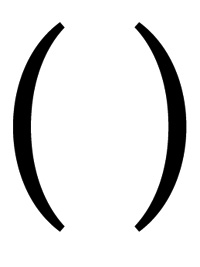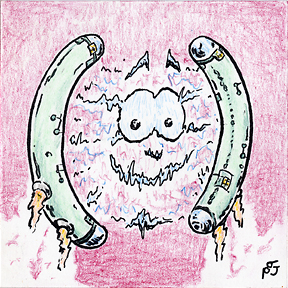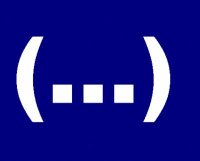Write in camera angles, your script won’t get read past page 1 by any professional reader. This is kindergarten stuff. Even my freshman at Columbia know enough not to do it. You don’t tell the director how to direct. Period.
So why the confusion around parentheticals?
When you write a parenthetical, you’re telling the actor how to act. You’re giving a line reading. Only the worst directors give line readings. But more to the point: It’s not your job!
Do you really believe an actor is going to remember that at the bottom of page 66 you wanted them to smile when delivering the line “Please, pass the poi”? They won’t remember because it doesn’t matter how the writer wants them to say the line. It might matter if the director asked them to say it a certain way, but do you think Scorsese spends much time giving line readings? This isn’t High School drama class, it’s the pros, and you need to be ready.
You don’t write in parentheticals for another good reason. You’re taxing the reader’s eye for no reason. You want the script to be a clean read. That means including only what’s necessary to make the reader see the movie. 9 times out of 10 you could probably get away with not using one.
How can you tell? When in doubt, take it out. Does the scene fall apart? No? Then it stays out. Just that simple.
When do you need a parenthetical? As above, when it impacts story. If someone (pulls out a gun) it’s likely that will impact the scene. So it stays.
Could I be a little more specific about what could go? Oh yes…
(wryly, smiling, laughing, sarcastically, waving with his right hand, waving with his left hand, lifting his beer, emotional, cautiously, mumbles, whispers, loudly, surprised, loudly and surprised, standing up wearing her white patterned shirt, going inside with a dish of food, picking up a pear and chewing, kidding, joking, amused, indifferent, nervous, excited, pertinacious, pointing to the taxi, pointing to the mini-van, pointing to the can of peas….)
I could go on, but why ruin a perfectly good Sunday?
When you find yourself about hit the Final Draft parenthetical tab, take it from the Parenthetical Hater…
Don’t.





“standing up wearing her white patterned shirt” and other such actions go in action. As of course you know.
When I hear someone saying “DON’T… PERIOD”, alarm bells go off. A reasonable counter is that it’s only a hint from the writer, not some ultimatum. It’s not as if everything else that’s written won’t be folded, spindled,and mutilated in the end too…
No, you’re not telling the actor how to act, or the director how to direct. You’re filling in the blanks. Sometimes the quickest springboard to creativity is to see something on the canvas… even if it ain’t a Picasso… If it could be read forty different ways, mostly wrong, it could help to dispose of one of them quickly.
You are so right. There are no absolutes in screenwriting. So when I tell you you SHOULDN’T write (wryly) or (smiling) it’s a suggestion not an absolute. If you write THE SOCIAL NETWORK do you really think producers are going to give a damn about your using parentheticals. ‘Course not. So thanks for that correction. Where you see me say DON’T…it really means I WOULDN’T but if you want to FEEL FREE. In the end we’re debating style here when all that matters is story.